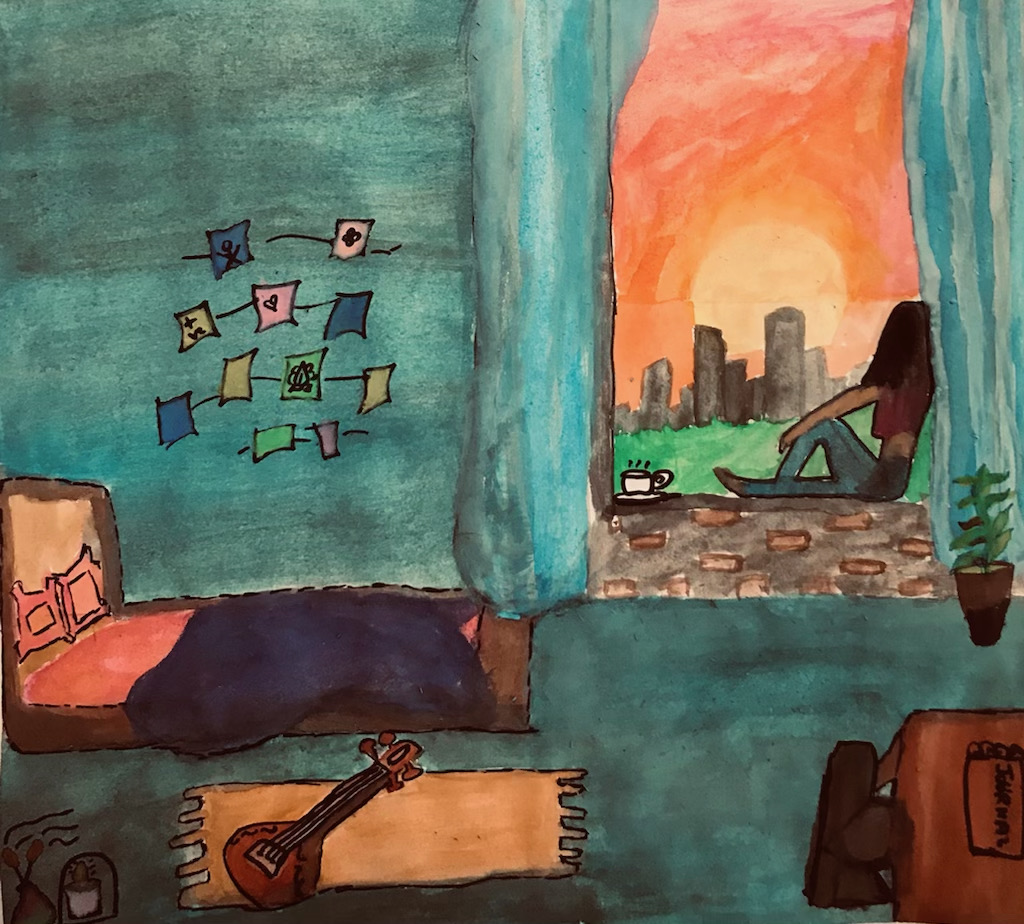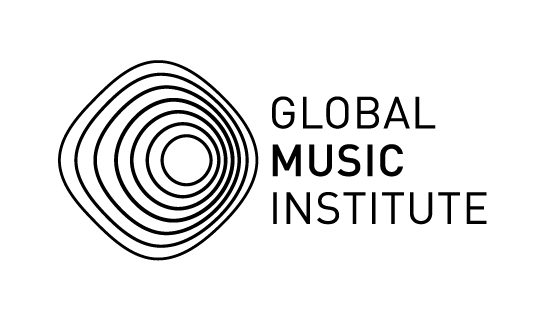
15 Oct Conflict, Courage, and Change
10th October is recognised as World Mental Health Day by World Health Organisation. In light of this day, GMI alum, Senjuti Maitra, shares with you a small glimpse of the realities of her world.
TW: Death, suicidal thoughts, depression, psychological and emotional distress
I was eleven years old when I walked into a psychologist’s office for the first time. Dumbfounded by the grief from my great-grandmother’s passing, I was taken there by my parents. At the precipice of my senior year of high school, while my peers were busy planning the coming year, I was in hospital for three weeks from malnutrition and suicidal ideation caused by Major Depressive Disorder. For me, contemplating the possibility of completing the coming year seemed like an impossible feat.
When our hearts are hurting, and our souls are weary, we often look to our mind for strength, guidance, and direction. But what do you do when your mind turns on itself?
The very basics of day-to-day living such as eating, showering, and sleeping, felt impossible, whilst other goals and aspirations took a back seat. The nights blessed with rest were short lived and quickly turned into agony with endless nightmares, and panic filled cold-sweats. Connection and presence – the pillars of living an enriching and meaningful life, became distant illusions. My days changed from starting and ending with the sound of music, to a deadening silence, as my connection with my most steadfast companion severed. Simple pleasures became painful and sterile, and my once favourite foods tasted like cardboard. Friends became strangers when my inability to answer phone calls turned into an endless silence widening the gap between distant hearts.
For years, I moved back and forth – struggling, seeking, enduring, and sinking from the ongoing impacts of Post Traumatic Stress Disorder (PTSD). I went round and round in circles, moving between places and arriving nowhere. Six years after the first hospitalisation, I was forced to confront my demons whose grip had only strengthened with the onset of new adversities. I was forced to make a choice – to choose myself, and to choose life. A choice to dedicate 2021 as a year of nursing myself back to health slowly but surely, one step at a time.
As someone who often focuses on the ‘bigger picture’, I had lost sight of the little picture – myself. This was my chance to reclaim and repaint a canvas muffled by dissonant shades and no centrepiece. Embarking on this journey, I did not fully understand what I was stepping into. Nor did I know anybody else who had undergone a similar experience to seek guidance from. The loneliness of moving through the days learning to take care of myself, while my closest friends celebrated graduations, new jobs, new releases, and much more, was real. The challenges of each moment and each day were unpredictable. For every three steps forward, I took ten steps back. Clouds of doubt derailed my commitment and faith, and any hope of stepping into the light faltered.
One of the most important elements of any psychological recovery process, emphasised by healthcare professionals, is human connection and nourishing relationships. However, my hypervigilant nervous system, and extreme fear of people and the world at large — typical characteristics of PTSD — saw me confined to the four walls of my room, unable to connect to other people. Rare adventures out to the world of human relations felt rattling and nerve wrecking. Most social encounters began with a question: how are you? My responses ranged from “fine,” “good,” and on the rare occasion I felt courageous, “okay but I have been better.” I observed the range of stuttering, awkward, and sometimes patronising responses I received from well-meaning friends, the more honest my answer was. The simple truth was, they did not know how to be comfortable in the rawness of a lived reality starkly different to their own. In the face of such discomfort, my instinct to crawl into my shelter and remain there indefinitely, took hold. In a bid to protect myself from the prying eyes of people whose endless questions I had no answers to, my initial withdrawal stretched out into days, and blended into months.
Although I was making progress through psychotherapy, and a daily yoga and mindfulness practice, I had nothing to show for it. In a society dominated by celebrations of academic and professional ‘success’, there was no place or measure to account for my small, but impactful milestones of progress. On the other hand, the lack of academic and professional progress invited scrutiny and doubt from those around me. Are you lazy? Do you have it in you to move beyond your present state? Why can’t you be stronger? Do you lack willpower?
These questions were implicit, but their presence was undeniable. At times, I was tempted to respond. “I am looking after my mental and emotional health, to recover from years of struggle and suffering. It is my full time job at present.” However, as I have learned, this is not an answer we are socially equipped to handle just yet.
Unlike wounds of the flesh, our psychological and emotional injuries are invisible. In a world centred on the visual domain, what you cannot see often does not exist. It is only when you live through it that you realise how real and trying it is. Anyone struggling with their mental and emotional health wants sensitivity and compassion, but they also want the dignity you would extend to any human being. I did not want pitiful glances from others, nor did I want to be treated with fragility. I simply desired connection, and a quiet show of support – something I was fortunate to receive from my army of allies. Their number may be small, but their might is not. To them, I owe every milestone, big and small, of progress and growth towards health, wellbeing, and life. They are my biggest source of strength, love, and hope.
For years, I was afraid to reach out to friends in moments of need. I was afraid to be burdening and forcing upon them a weight no one wanted to carry – least of all, myself. I am eternally grateful to my dearest few who, through their loving presence and compassion, have taught me the single most important lesson I have ever learned: we are all worthy of love, connection, and belonging as we are, and for who we are. A connection we need most of all in moments of vulnerability and heartache- not despite, but because of it; for it is vulnerability that breeds true connection.
Our brains have evolved to help us survive- not thrive. Learning to create a life of fulfilment, in which I thrive against the odds, often feels baffling and paradoxical. Like the rest of us, I too struggle to accept myself and the fragility of my human condition. For much of my life I have been weighed down by overtly scrutinising my deficiencies, and shackled by the constraints of my mind- one I viewed as a weakness. What I have learned after all these years of living with a fragile state of mental health, is that when it comes to matters of the mind, body, and soul, there is always more to learn and new perspectives to gain. Perspectives and lessons that can propel you one step closer to the reality of your choosing.
I continue to dream of a life free of struggle. I dream of a morning when I wake up without pain. And I dream of a life of creation, of joy, and love. There was a time when these dreams were merely words. But as my year of rehabilitation and recovery is crawling to an end, I can feel the first rays of light on the near, and yet distant horizon. Through my experiences, I have learned that one’s inner anguish can swallow you whole, leaving you high and dry; but you will still be standing with your head held high, dignity intact, on the other side.
To anyone experiencing similar struggles– you are more than a mental health condition and diagnosis. The range of experiences we have in life shape us and who we are, but we are more than our experiences. In light of this understanding, I continue my explorations– seeking a deeper truth to connect to the core of who I am and my purpose in this earthly realm.
As I write this piece, comfortably sitting cross legged on the carpeted floor of my room, I am in a place of greater peace than I have ever been in before. The days that feel like my own, I embrace and fill with movement, music, and poetry. And the days that don’t go to plan, I end with Maya Angelou’s words:
“Out of the huts of history’s shame,
I rise.
Up from a past that’s rooted in pain,
I rise.
I’m a black ocean, leaping and wide,
Welling and swelling I bear in the tide.
Leaving behind nights of terror and fear,
I rise.”
Artwork by: Srishti Mohlah
Senjuti is an aspiring vocalist, composer, performer, and writer. Her earliest musical influences are rooted in the inflections of North Indian Classical Music. She spent a year learning and developing an understanding of Hindustani Classical Music from musical stalwart Pandit Ajoy Chakraborty in Kolkata, India. After a hiatus, she returned to India to broaden her musical horizons at the Global Music Institute, New Delhi, India- a Berklee Global Partner institution. Currently, she is deepening her study of music through private study and practice. Inspired by sounds of life, and varying musical styles from across the world map, she is on a journey of self-discovery through music. She hopes to create a discography inspired by cross-cultural exchanges, and explorations of the human condition.



No Comments